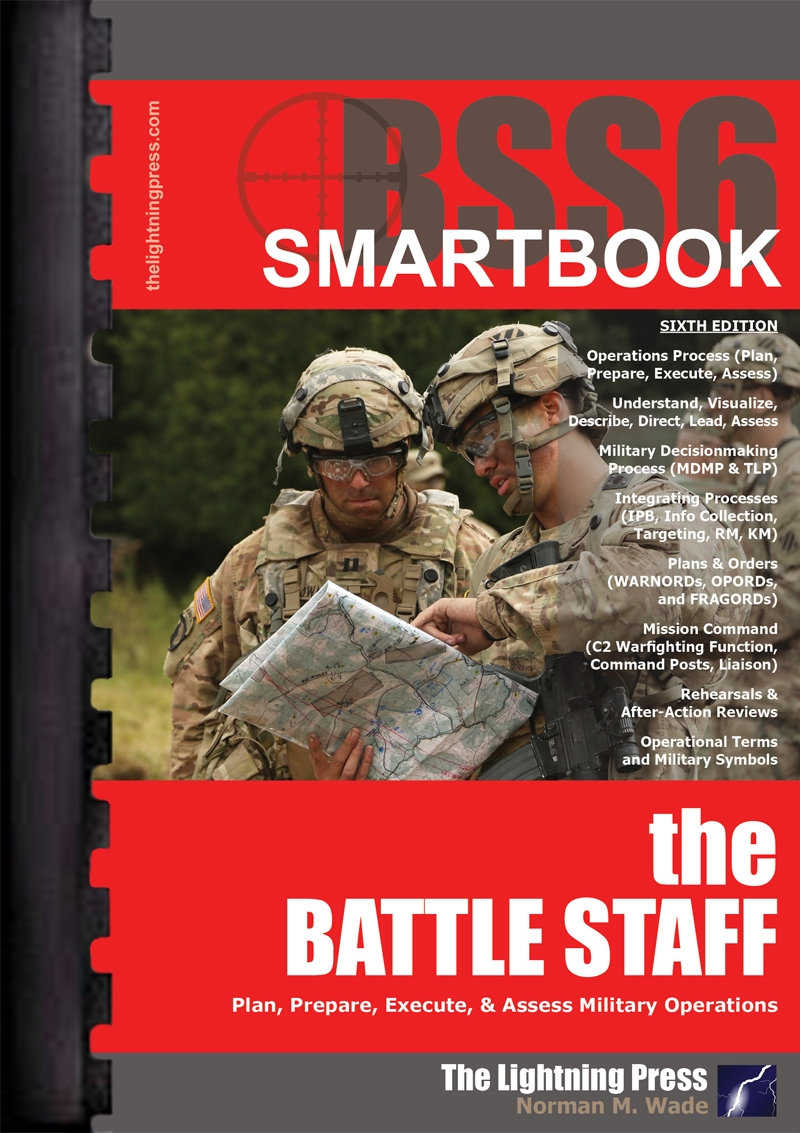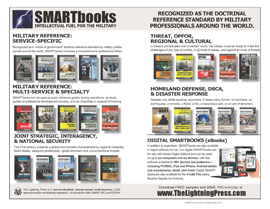Download, view, and print a FREE PDF sample: the battle staff smartbook pdf (click “View Book” below)
BSS6: The Battle Staff SMARTbook, 6th Ed. (PREVIOUS EDITION)

Upgrade/update to the NEW 7th Edition (BSS7)!
BSS6: The Battle Staff SMARTbook, 6th Ed. (Aug 2020) has been superseded by a new seventh edition BSS7 (Oct 2023), but copies are still available here for readers looking for this specific edition or as required material for a specific course or class requirement. Or upgrade/update to the NEW edition! Click "HERE" to browse the new BSS7 edition! BSS6 is the sixth edition of The Battle Staff SMARTbook, completely updated for 2020. Updated material includes the full scope of new material from ADP 5-0, The Operations Process (Jul ‘19); ADP 6-0, Mission Command (Jul ‘19); FM 3-0 (w/Change 1), Operations (Dec ‘17); FM 6-0 (w/change 2), Commander and Staff Organization and Operations (Apr ‘16); ATP 2-01.3, Intelligence Preparation of the Battlefield (Mar ‘19); ADP 3-19, Fires (Jul ‘19); ATP 3-60, Targeting (May ‘15); ATP 5-19 (w/change 1), Risk Management (Apr ‘14); and ADP 1-02, Terms and Military Symbols (Aug ‘19); and more. BSS6 also features a return of our premium GBC plastic-comb binding for a true open-flat reference experience! The Battle Staff SMARTbook covers the operations process (ADP 5-0); commander’s activities; Army planning methodologies; the military decisionmaking process and troop leading procedures (FM 6-0 w/Chg 2: MDMP & TLP); integrating processes (IPB, information collection, targeting, risk management, and knowledge management); plans and orders (WARNORDs/FRAGORDs/OPORDs); mission command, C2 warfighting function tasks, command posts, liaison (ADP 6-0); rehearsals & after action reviews; and operational terms and military symbols (ADP 1-02). The Army’s framework for organizing and putting command and control into action is the operations process—the major command and control activities performed during operations: planning, preparing, executing, and continuously assessing the operation. Commanders use the operations process to drive the conceptual and detailed planning necessary to understand their operational environment (OE); visualize and describe the operation’s end state and operational approach; make and articulate decisions; and direct, lead, and assess operations. Planning is the a...
View Book






